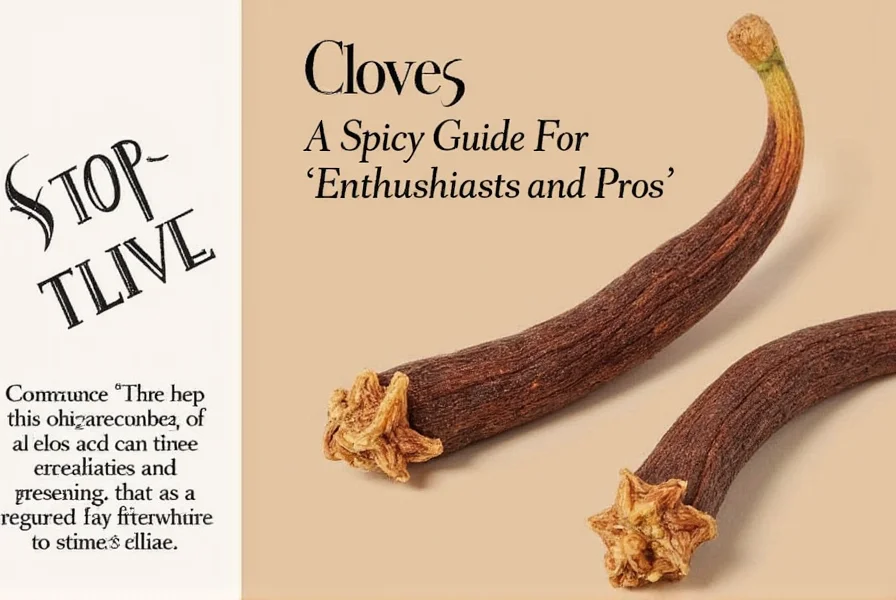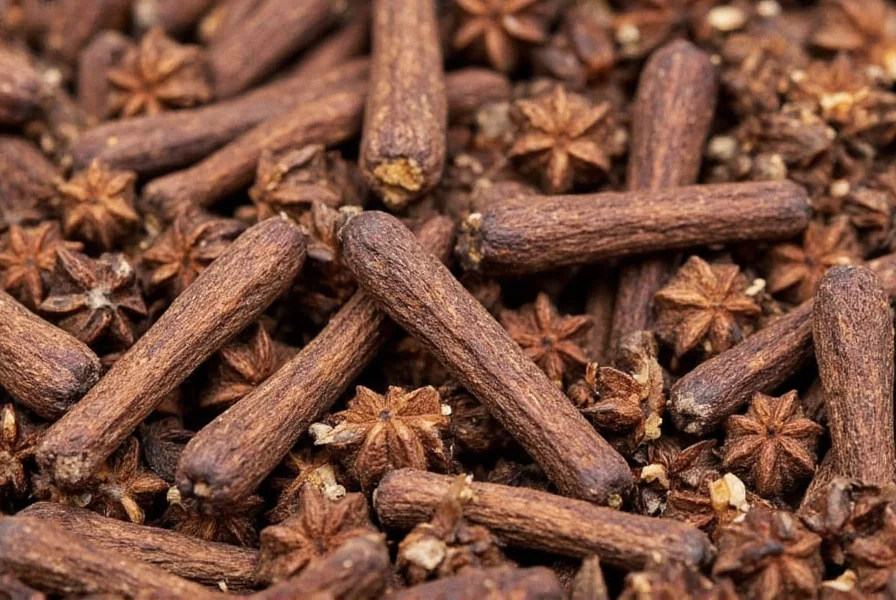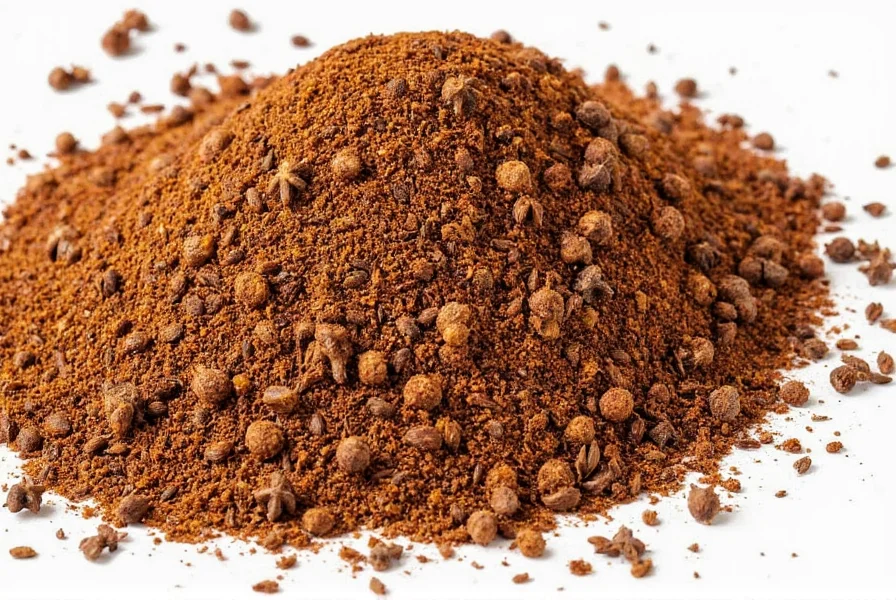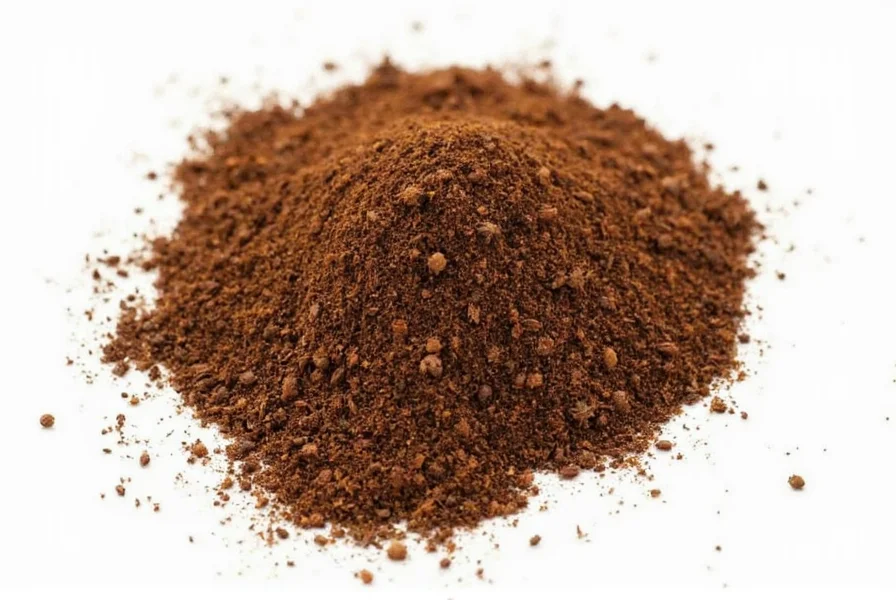Table of Contents
- How Much Cloves to Use: Precise Measurements for Perfect Flavor
- Cloves Substitution Guide: What to Use When You're Out
- Understanding Cloves Flavor Profile for Better Cooking
- Practical Cooking Applications: When & How to Use Cloves
- Buying Guide: Whole vs. Ground Cloves Compared
- Proper Clove Storage: Maximize Freshness & Potency
- Traditional Uses: Understanding Cloves' Historical Benefits
- Frequently Asked Questions About Cloves Seasoning
How Much Cloves to Use: Precise Measurements for Perfect Flavor
Getting the quantity right is crucial when using cloves seasoning. Too little and you won't notice them; too much and your dish becomes overwhelmingly bitter. Based on professional culinary standards, here's exactly how much to use:
| Dish Type | Whole Cloves | Ground Cloves |
|---|---|---|
| Ham (per pound) | 3-5 cloves | ⅛ tsp |
| Pumpkin Pie (per standard recipe) | N/A | ¼ tsp |
| Mulled Wine/Cider (per quart) | 6-8 cloves | ⅛ tsp |
| Rice Pilaf (per cup of rice) | 2-3 cloves | ⅛ tsp |
| Beef Stew (per pound of meat) | 4-6 cloves | ⅛ tsp |
Pro tip: Whole cloves release flavor slowly during cooking and should be removed before serving. Ground cloves integrate immediately but can become bitter if overheated. For best results, add ground cloves in the last 10-15 minutes of cooking.

Cloves Substitution Guide: What to Use When You're Out
Ran out of cloves mid-recipe? These precise substitutions maintain flavor balance without compromising your dish:
| Needed | Best Substitute | Ratio | When to Use |
|---|---|---|---|
| ¼ tsp ground cloves | Allspice | ⅛ tsp | Baking, mulled drinks |
| ¼ tsp ground cloves | Cinnamon + Nutmeg | ⅛ tsp cinnamon + ⅛ tsp nutmeg | Pies, custards, baked goods |
| 3 whole cloves | Star Anise | 1 star | Braised meats, slow-cooked dishes |
| 5 whole cloves | Pimento (Allspice berries) | 5 berries | Pickling, spice blends |
Important: Allspice is the closest flavor match as it contains clove-like compounds. Never substitute 1:1 with cinnamon alone - this creates an unbalanced flavor profile. For meat dishes, star anise provides similar warmth without the bitterness. Note that substitutions work best in liquid-based applications like stews or mulled drinks where flavors meld over time, but often fail in baking due to precise chemical reactions required for texture development (Food Chemistry, 2019).
Understanding Cloves Flavor Profile for Better Cooking
Cloves deliver a distinctive flavor profile that can make or break your dish when used correctly. Their potency comes from eugenol, which makes up 70-90% of their essential oil content.
| Flavor Characteristic | Intensity Level | Culinary Impact |
|---|---|---|
| Warmth | ★★★★★ | Creates immediate sensation of warmth without heat |
| Bitterness | ★★★☆☆ | Develops if overused or cooked too long |
| Sweetness | ★★☆☆☆ | Noticeable in baked goods, balances acidity |
| Numbing Effect | ★★★☆☆ | Mild sensation on tongue, enhances other flavors |
Pro tip: Cloves work best when paired with ingredients that balance their bitterness. In sweet applications, pair with citrus (orange zest) or tart fruits (apples). In savory dishes, combine with fatty meats (pork, duck) or acidic components (tomatoes, vinegar).
Practical Cooking Applications: When & How to Use Cloves
Professional chefs use cloves in specific ways to maximize flavor while avoiding bitterness. Here's how to implement them correctly:
Meat Preparation
- Ham glazing: Stud 3-5 whole cloves per pound into the fat cap before applying glaze
- Beef stew: Add 4-6 whole cloves at the beginning of cooking; remove before serving
- Roast pork: Insert whole cloves into scored fat layer for even flavor distribution
Baking Techniques
- Pumpkin pie: Use exactly ¼ tsp ground cloves per standard recipe (too much makes it medicinal)
- Bread dough: Mix ground cloves with dry ingredients to prevent clumping
- Fruit compotes: Add 2 whole cloves per cup of fruit, remove after cooking
Beverage Preparation
- Mulled wine: Use 6-8 whole cloves per quart; simmer 15 minutes then strain
- Spiced tea: Combine 3 whole cloves with 1 cinnamon stick per cup of water
- Cold brew spice infusion: Steep whole cloves in cold brew for 12 hours max

Buying Guide: Whole vs. Ground Cloves Compared
Professional kitchens maintain both forms but use them strategically. Here's what matters when purchasing:
| Quality Indicator | Whole Cloves | Ground Cloves |
|---|---|---|
| Freshness Test | Float test: Fresh cloves sink in water | Color: Should be deep reddish-brown |
| Shelf Life | 3-4 years properly stored | 6-12 months |
| Flavor Potency | 40% more potent than ground | Loses potency rapidly after grinding |
| Best Value | $7-10 per oz (lasts longer) | $5-8 per oz (convenience premium) |
Pro tip: For baking applications requiring exact measurements, grind your own cloves from whole using a dedicated spice grinder. This provides significantly better flavor than pre-ground options. Store whole cloves in an airtight container away from light for maximum freshness.

Proper Clove Storage: Maximize Freshness & Potency
Improper storage is the #1 reason cloves lose flavor. Follow these professional storage methods:
- Air-tight containers: Use glass jars with rubber seals (not plastic bags)
- Location: Store in dark cabinet away from stove (heat degrades eugenol)
- Humidity control: Add silica packet to container (cloves absorb moisture)
- Freezing: Only for long-term storage (6+ months); use vacuum-sealed containers
- Freshness check: Crush a clove - strong aroma means fresh; musty smell means expired
Never store cloves in the refrigerator - the humidity causes flavor degradation. Whole cloves maintain potency for 3-4 years when stored properly, while ground cloves lose 50% of their flavor compounds within 6 months.
Traditional Uses: Understanding Cloves' Historical Benefits
While primarily a culinary spice, cloves have been used traditionally for various purposes across cultures. It's important to understand these as historical context rather than medical advice:
| Time Period | Documented Application | Historical Evidence Source |
|---|---|---|
| 200 BCE | Chinese "count-to-nine" protocol: Courtiers held cloves to freshen breath during audiences | NCBI Historical Review |
| 1500s CE | "Four Thieves Vinegar"配方 included cloves for plague protection in Marseille | Wellcome Collection Archives |
| 1830s | Eugenol isolated; became standard dental analgesic in Western medicine | Journal of Chemical Education |
| 1958 | GRAS status established by FDA for culinary use | FDA 21 CFR 182.10 |
| Traditional Claim | Scientific Validation Status | Research Evidence |
|---|---|---|
| Toothache relief | Partially validated | Eugenol provides temporary pain relief (60-70% efficacy in short-term studies), but doesn't treat underlying causes (Journal of Dentistry, 2015) |
| Digestive aid | Limited evidence | In vitro studies show potential, but human trials lacking; culinary doses considered safe but not therapeutic (Phytotherapy Research, 2017) |
| Food preservation | Context-dependent | Effective against E. coli and S. aureus at 1% concentration, but impractical in standard cooking (Journal of Food Science, 2013) |
- Dental applications: Eugenol's numbing properties made cloves a traditional toothache remedy
- Digestive aid: Clove tea has been used in various cultures to soothe digestion
- Food preservation: Natural antimicrobial properties helped preserve foods historically
- Antioxidant content: Cloves rank high on the ORAC scale among spices
Note: Culinary use of cloves as a seasoning is generally recognized as safe. For medicinal applications, consult healthcare professionals as concentrated forms (oils, extracts) may interact with medications.
Frequently Asked Questions About Cloves Seasoning
How much ground cloves equals one whole clove?
Approximately 1/8 teaspoon of ground cloves equals one whole clove. When converting recipes, remember that ground cloves have a slightly different flavor profile and are more potent by volume.
Can I substitute cloves in pumpkin pie?
Yes, use ⅛ teaspoon of allspice for every ¼ teaspoon of cloves called for. Alternatively, combine ⅛ teaspoon cinnamon with ⅛ teaspoon nutmeg. Never use straight cinnamon as a 1:1 substitute - this creates an unbalanced flavor.
Why did my cloves make my dish bitter?
Bitterness occurs when too many cloves are used or they're cooked too long. For whole cloves, use 3-5 per pound of meat. For ground cloves, never exceed ¼ teaspoon per standard recipe. Remove whole cloves before serving to prevent continued flavor extraction.
Do I need to remove whole cloves before serving?
Yes, always remove whole cloves before serving. They remain hard during cooking and can damage teeth if bitten. They also continue to release bitter compounds the longer they stay in the dish.
What's the best way to grind cloves?
For best results, freeze whole cloves for 30 minutes, then use a dedicated spice grinder. This prevents the oily cloves from clumping. Never use a coffee grinder unless it's exclusively for spices, as cloves will impart strong flavor to coffee.
Can I use expired cloves?
Expired cloves won't make you sick but will lack flavor. Test by crushing a clove - if the aroma is weak or musty, replace them. Ground cloves lose potency within 6-12 months, while whole cloves last 3-4 years when stored properly.
Are cloves safe for children in cooking?
Yes, cloves used in normal culinary amounts are safe for children. However, never give children whole cloves to chew (choking hazard), and avoid clove oil for children under 2 without professional guidance.
What dishes absolutely need cloves?
Traditional recipes that rely on cloves include: German gingerbread (Lebkuchen), Indian garam masala, Dutch speculaas, Christmas ham, and mulled wine. These dishes lose authentic flavor without cloves.
How can I fix a dish with too much clove flavor?
If you've over-spiced, add equal parts honey and lemon juice (1 tsp each per serving) to balance bitterness. For liquid dishes, dilute with additional liquid base. In baking, this is difficult to fix - prevention through proper measurement is key.
Do organic cloves taste different?
Organic certification affects growing practices but not flavor profile. What matters more is freshness and storage. Older organic cloves will taste worse than fresh conventionally grown ones. Focus on purchase date and storage conditions rather than organic status for best flavor.











 浙公网安备
33010002000092号
浙公网安备
33010002000092号 浙B2-20120091-4
浙B2-20120091-4